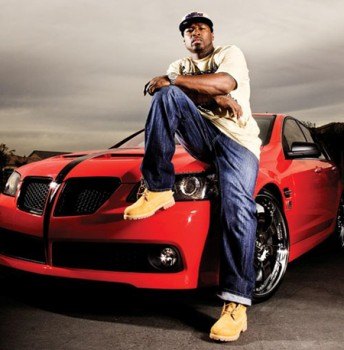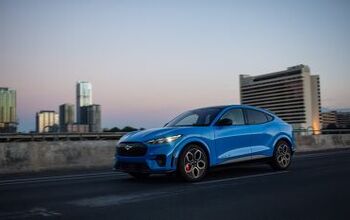Lutz: RWD Zeta Platform RIP
GoAuto hears from GM Car Czar Maximum Bob Lutz himself that the Camaro and G8 will be the last US market GM products based on Holden’s RWD Zeta platform. “The strategy we had a few years ago of basically deriving a whole sweeping global portfolio off the Australian Zeta architecture … frankly, we have had to abandon that dream,” said Lutz. “This is because, whether you are in the United States or in China, fuel economy mandates are getting more and more severe, and we just could not base our strategy on doing relatively large and relatively heavy rear-wheel-drive cars. I suspect the same thing is going to start to bite the traditional rear-wheel drive producers.” Not that they’re ditching the platform entirely. “It is our intent to continue the Australian rear-wheel-drive cars; we will continue building them and doing a next generation and so forth and so on,” says Mr Maximum. “And, to be honest, they continue to be my favourite cars. I think they are absolutely wonderful – but the regulatory environment is such that it would be imprudent to base a whole global platform strategy on them … much to my personal chagrin, by the way.” And what of the rumored Alpha compact RWD platform?
“What many of us would like to do (one day) is to do an all-new global rear-wheel drive architecture that would be considerably smaller, lighter and be capable of taking four-cylinder powertrains,” says Lutz. “That, I think, could be globally shared. It’s not even in the plan at this point; it’s just what we tell ourselves in that there is going to have to be a next-generation Camaro, and there is going to have to be a next-generation Cadillac sedan, and so there is going to have to be a smaller and a way more efficient rear-wheel-drive architecture. But at this point it is just a gleam in our eye.”
More by Edward Niedermeyer
Latest Car Reviews
Read moreLatest Product Reviews
Read moreRecent Comments
- Teddyc73 Oh good lord here we go again criticizing Cadillac for alphanumeric names. It's the same old tired ridiculous argument, and it makes absolutely no sense. Explain to me why alphanumeric names are fine for every other luxury brand....except Cadillac. What young well-off buyer is walking around thinking "Wow, Cadillac is a luxury brand but I thought they had interesting names?" No one. Cadillac's designations don't make sense? And other brands do? Come on.
- Flashindapan Emergency mid year refresh of all Cadillac models by graphing on plastic fenders and making them larger than anything from Stellantis or Ford.
- Bd2 Eh, the Dollar has held up well against most other currencies and the IRA is actually investing in critical industries, unlike the $6 Trillion in pandemic relief/stimulus which was just a cash giveaway (also rife with fraud).What Matt doesn't mention is that the price of fuel (particularly diesel) is higher relative to the price of oil due to US oil producers exporting records amount of oil and refiners exporting records amount of fuel. US refiners switched more and more production to diesel fuel, which lowers the supply of gas here (inflating prices). But shouldn't that mean low prices for diesel?Nope, as refiners are just exporting the diesel overseas, including to Mexico.
- Jor65756038 As owner of an Opel Ampera/Chevrolet Volt and a 1979 Chevy Malibu, I will certainly not buy trash like the Bolt or any SUV or crossover. If GM doesn´t offer a sedan, then I will buy german, sweedish, italian, asian, Tesla or whoever offers me a sedan. Not everybody like SUV´s or crossovers or is willing to buy one no matter what.
- Bd2 While Hyundai has enough models that offer a hybrid variant, problem has been inadequate supply, so this should help address that.In particular, US production of PHEVs will make them eligible for the tax credit.



































Comments
Join the conversation
I was going to say GM is cursing itself with torque steer, but when CAFE gets done neutering the automobile industry most vehicles will be too underpowered to produce any.
I think the lack of sales on the G8 have more to do with GM's reluctance to sell the car because they (last I heard) lose money on each one and because the dealers are awful. On the highway the efficiency losses of a RWD vehicle are not even noticable. Aerodynamics and gearing are a much larger concern at highway speeds and even around town the losses are pretty minor. BMW has rwd down to an art and their cars make it obvious that efficiency isn't the issue. The Corvette, 4th gen f-body and the modern G8 also stand out as getting suprisingly good fuel economy. A lot of this may have to do with the LS engine being a fairly simple OHV V8 with a single cam and 2 valves per cylinder compared to the 24 valves and 4 cams of a modern V6. Manufacturing costs are the big reason why most manufactures went with FWD cars, they are much easier to build. It has little to do with interior space or fuel efficiency. Hell, throughout the 70's and early 80's most Toyotas and Nissans (including the Corolla) were RWD. The Corolla went FWD about the same time Chrysler started building K-Cars and GM unleashed it's fwd X and J body cars. They did it to get costs down, no one buying the cars particularily cared other then the car got cheaper. The space needed for the components in a low power RWD economy car is pretty minor, compared to the bulky chunks of metal needed in a V8 sports car cranking out over 300 ft-lbs at 2000 rpm. Most people don't care about the tunnel either, whoever got that middle back seat wasn't the person that bought the car so they could damn well deal with it (or they would get something real to cry about). I see more BMW 318's and 323's here in Vancouver then I see Toyota Camry's. Someone is buying the damn things, they just aren't interested in the Pontiac but that isnt the RWD platforms fault.